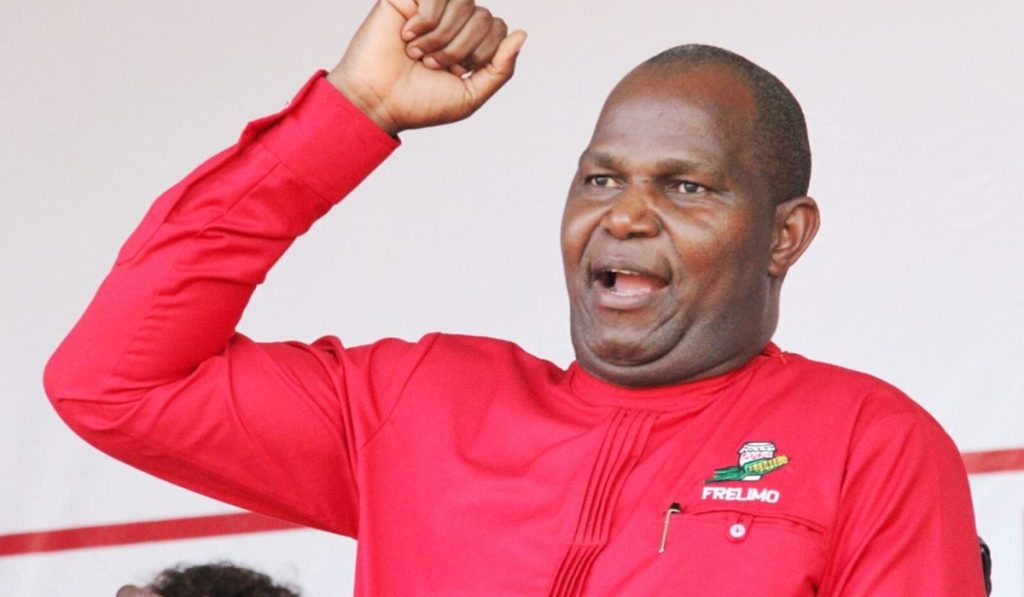Frelimo Secures Controversial Victory in Mozambique’s Election
3 min read
Daniel Chapo will become the first Mozambican president born after independence in 1975

Daniel Chapo will become the first Mozambican president born after independence in 1975
Mozambique’s ruling party, Frelimo, has achieved a significant victory in the recent contentious election, consolidating its nearly five-decade hold on power in the southern African nation. Official results indicate that Daniel Chapo, a relatively unfamiliar candidate positioned as a figure of change, has won the presidency, succeeding Filipe Nyusi, who has completed two terms.
At 47 years old, Chapo, who garnered an impressive 71% of the votes, will become the first president born after Mozambique’s independence in 1975. His main opponent, Venâncio Mondlane, received 20% of the votes, while Ossufo Momade, representing the former rebel group Renamo, finished a distant third with just 6%.
In his victory speech, Chapo remarked, “We remained silent all this time, for respecting the law. We are an organized party that prepares its victories.” However, the aftermath of the election has been marked by violent protests in several towns, resulting in casualties and a heavy police presence in affected areas.
The election has been overshadowed by serious allegations of electoral fraud and violence against opposition supporters, leading to widespread unrest throughout the country. The political climate has been particularly charged, with calls for accountability from various quarters.
Interestingly, Zimbabwe’s President Emmerson Mnangagwa, who has faced similar allegations of election malpractice, congratulated Chapo on his “resounding victory” even before the official results were made public, raising eyebrows about the integrity of the electoral process.
Political analysts have noted that Renamo’s standing as the primary opposition party has weakened. Tomás Vieira Mário pointed out that Momade has struggled to connect with younger voters, resulting in a significant loss of support for the party.
The results announced have left many surprised, even within Frelimo itself. Fernando Mazanga, the deputy chairperson of the electoral commission and a Renamo appointee, expressed dismay, stating, “These results do not represent the reality.” He emphasized that the results were contrary to the principles of electoral justice.
Voter turnout was reported at 43% from over 17 million registered voters. In addition to the presidential election, parliamentary and provincial elections were conducted simultaneously, with Frelimo winning a commanding 195 out of 250 parliamentary seats. The opposition party Podemos, which supported Mondlane, secured 31 seats, while Renamo obtained 20 seats. Frelimo also triumphed in all provincial elections.
In a celebratory address following the results, President Nyusi stated, “With more than 70% of the votes, I don’t see any teacher failing a student.” This remark underscores the ruling party’s confidence in its electoral mandate, despite the contentious atmosphere surrounding the polls.
The election was seen as pivotal for Mozambique, a nation grappling with economic challenges, corruption, and high poverty levels. Mondlane, who has called for a national strike in response to alleged electoral fraud, expressed his intent to contest the results in court. He insists that he won the election, despite early indicators suggesting Chapo was leading.
Mondlane now has until December to formally challenge the results. On the day following the election, he organized nationwide protests, which were met with police resistance, including the use of live ammunition and tear gas to disperse crowds.
International observers, including representatives from the European Union (EU), have also raised concerns about the integrity of the election. They reported instances of “irregularities during counting and unjustified alterations of election results,” highlighting a troubling pattern in Mozambique’s electoral history.
Adriano Nuvunga, a political analyst, has criticized what he describes as a recurring trend of fraudulent elections in the country. The electoral commission has not responded to the allegations of vote rigging, leaving many questions about the electoral process unanswered.
Chapo is set to be sworn into office in January, and the political landscape in Mozambique remains uncertain as tensions continue to simmer in the wake of the disputed election. As the nation grapples with the implications of this election, the calls for reform and accountability are likely to intensify, reflecting the broader struggles for democratic governance in the region.